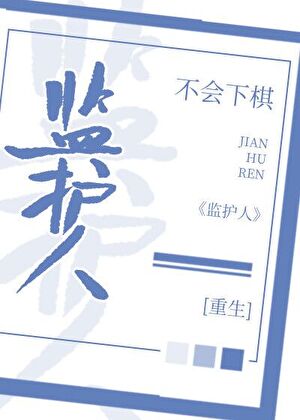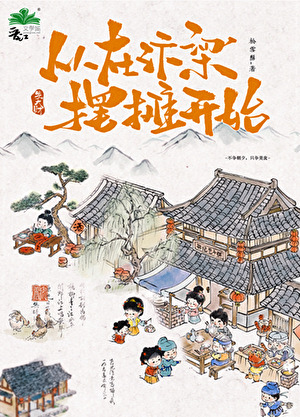"Starting next year, the company has decided to cancel the year-end bonus system and replace it with year-end dividends. I’ve mentioned this before, but let me emphasize it again: from now on, the company will allocate no less than 20% of its annual profits for dividends. I can assure you all that as long as we maintain our current growth momentum, the dividends will absolutely exceed what you’d receive as year-end bonuses."
"As for when year-end bonuses might be reinstated, it would only happen if the company requires significant funds for expansion. But rest assured, I will never let anyone suffer losses because of this."
This decision had been carefully considered by Liu Yutong. Last year was exceptional—Wanlong Hui had only been established for half a year by year-end, and the employee stock ownership plan was implemented late, so year-end bonuses were distributed at the annual gathering.
But next year would be different. Given the current progress of the stock ownership plan, the vast majority of employees would hold shares, making year-end dividends a more suitable arrangement.
Replacing year-end bonuses with dividends had both advantages and disadvantages.
The upside was that it tightly bound employees’ interests to the company’s, enhancing loyalty. Once employees held company shares, the company’s profits would directly translate to their own gains. This would undoubtedly boost motivation, foster long-term commitment, and reduce talent attrition.
Dividends could also ease the company’s cash flow pressure. Year-end bonuses were fixed expenses—regardless of whether the company made a profit or a loss, they had to be paid out.
Of course, one could choose not to distribute bonuses, but Liu Yutong felt that withholding them wouldn’t be appropriate. At least with bonuses, employees could enjoy a happier New Year.
Moreover, dividends were typically paid when the company was profitable. If funds were needed for expansion—such as opening new branches or investing in new ventures—the dividend ratio could be flexibly adjusted to avoid straining cash flow.
The downside, however, mainly affected some junior employees.
For instance, new hires might hold little or no shares. If profits declined in the future, reducing dividends, their income would be significantly lower than that of senior employees with more shares.
Still, from a long-term perspective, the benefits of the dividend system far outweighed the drawbacks.
Liu Yutong would also strive to make adjustments and maintain balance. She remained committed to the principle of "common prosperity," ensuring that stock subscriptions were regularly opened so every employee could hold shares and benefit from the company’s growth.
She would also commission surveys—for example, to understand why some employees never subscribed to shares despite the opportunity.
Was it distrust in the company? Financial difficulties at home? Or other reasons?
Why would anyone refuse what was essentially a guaranteed profitable deal?
If it was the former, then so be it. Those who chose not to buy shares couldn’t blame the company for missing out on dividends and growth benefits.
But if there were special circumstances, she would identify gaps and explore solutions.
When Liu Yutong announced the shift to dividends and the end of year-end bonuses, almost no one in the Wanlong Hui audience expressed dissatisfaction.
They now understood the benefits of subscribing to shares—it was like investing in a highly lucrative financial product. Why would they object?
Most ordinary people weren’t skilled at managing finances, so buying company shares was an excellent choice.
Anyone who opposed it would be a fool.
Of course, all of this was predicated on the company’s leader being Liu Yutong.
At any other company, their first reaction would likely be suspicion that the company was trying to swindle their wages.
Once the explanations were complete, Liu Yutong instructed Ma Da to distribute forms to everyone.
This was the simplest, most direct, and efficient way to quickly understand employees’ family situations and reasons for not purchasing company shares.
The reason for this sudden survey was that during the last stock subscription, some core members had subscribed very little, and others hadn’t subscribed at all.
If they simply spent all their money and couldn’t save, then that was that—not everyone could save, and it wasn’t something to force.
But if there were other reasons, she wanted to know in advance. It was part of her responsibility as a leader.
After Zhang Tao and his team finished distributing the forms, he returned to his seat and stared blankly at the one he’d kept for himself.
The form listed detailed items to fill out, including family members’ health conditions, financial burdens, and housing situations.
"Brother Tao, why the daze?" A colleague beside him nudged him.
Zhang Tao snapped out of it and forced a casual smile. "It’s nothing. I just didn’t expect Liu Yutong to conduct this kind of survey."
"Isn’t it normal? Even though Wanlong Hui has so many brothers and sisters now, Liu Yutong still cares about us. That’s why she’s having us fill out these forms."
"Yeah, she’s never forgotten about us."
On stage, Liu Yutong continued her speech.
"This stock subscription is entirely voluntary—the company will never force anyone. But I want to remind everyone: Wanlong Hui isn’t just a place to make money. It’s home to all our brothers and sisters. If you face any difficulties, you can always turn to your supervisors—including me."
Hearing this, Zhang Tao’s heart skipped a beat, and his eyes grew moist.
If Liu Yutong had emphasized it so much, was there any point in keeping his secret?
He looked down at the form again, then finally mustered the courage to write a few words under the "Major Family Illnesses" section: "Father, early-stage liver cancer."
After writing, as if he’d exhausted all his strength, he added a small line below: "Request for five years’ salary advance, to be deducted from future wages and secured against my shares."
All he knew was that his father’s subsequent surgery and medical expenses would be exorbitant, so he wanted to prepare enough funds.
The forms were to be collected by the end of the next workday, but today’s main focus was still the annual gathering.
Once the forms were distributed, the event was essentially over.
Ma Da immediately signaled the hotel staff to pull back a partition curtain, revealing rows of claw machines and a central area piled high with gifts—refrigerators, TVs, computers, and more.
"After dinner, everyone can collect game tokens—100 per person."
"And let me tell you, the odds are amazing! There are hidden prizes inside the plush toys, including 10 cash red envelopes worth 8,888 yuan each. Whoever grabs one keeps it!"
The crowd erupted in excitement and rushed over to start playing.
The odds were indeed incredible—almost every claw grab succeeded, with misses happening only two or three times out of ten, usually due to mistakes.
It was an experience never found in arcades or shopping malls, but here it was at the annual gathering.
Staff continuously replenished the plush toys.
Before long, shouts of excitement rang out.
"Holy crap! I won!"
A young man with dyed blond hair triumphantly held up a Pikachu plush and pulled out a slip of paper: "Limited-edition YSL lipstick set!"
He only realized what he had just shouted after the words left his mouth, his expression freezing instantly: "Oh... lipstick?!"
The crowd around him erupted in laughter.
"Qiangzi, this suits you perfectly. You’d look absolutely dazzling with lipstick on."
"Hahaha..."
"Get outta here! Why would I wear lipstick? Can’t I give it to my girlfriend?"
"Whoa, Qiangzi, you have a girlfriend now?"
"Nope, so what? Am I bragging?!"
In the end, his set of lipstick was swapped by colleagues for other prizes.
Liu Yutong watched the lively scene, played a few rounds of the claw machine, and then left.
There wasn’t much else to say anyway—might as well let them enjoy themselves.
Just as Liu Yutong stepped out of the hotel entrance, she received shocking news.
Pan Xing had been ambushed—nearly killed.
Her first thought upon hearing it was: Being the boss of the Yilian Society really is a high-risk job.
This makes the third one, doesn’t it?







